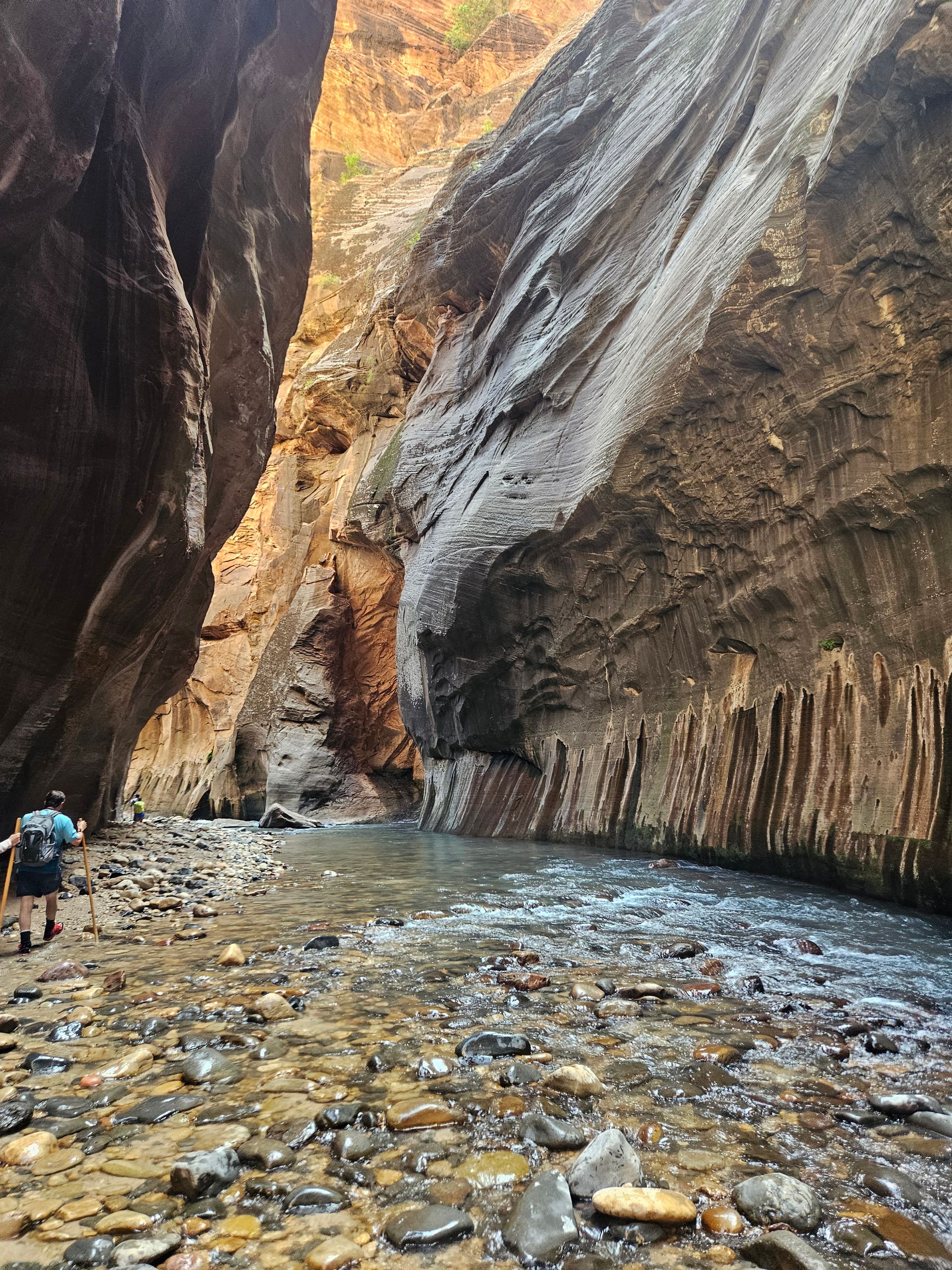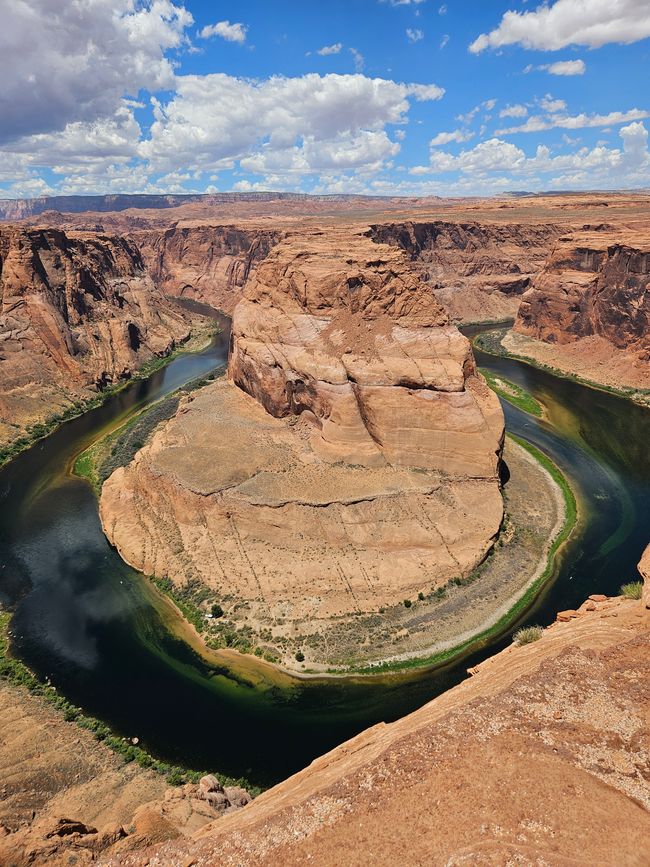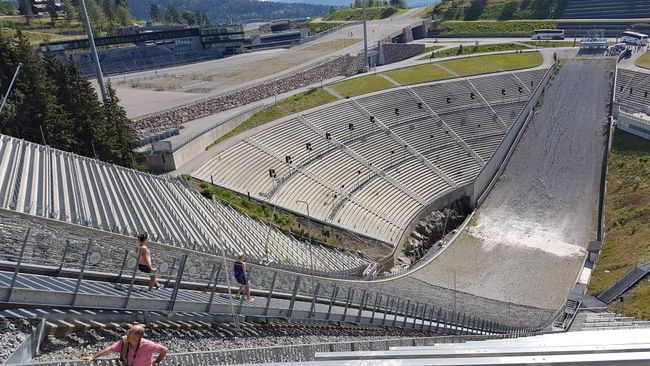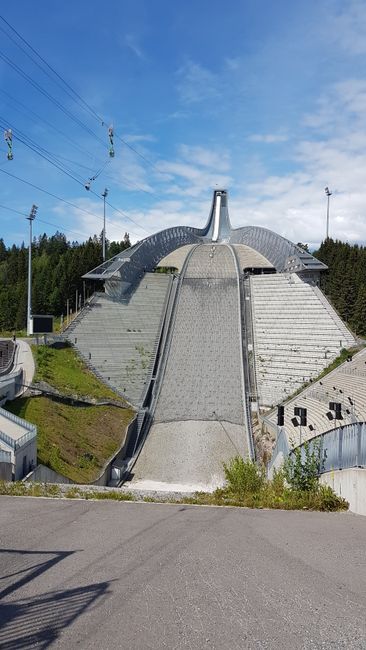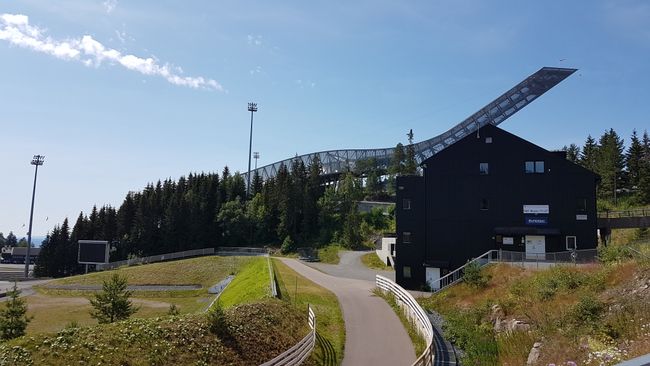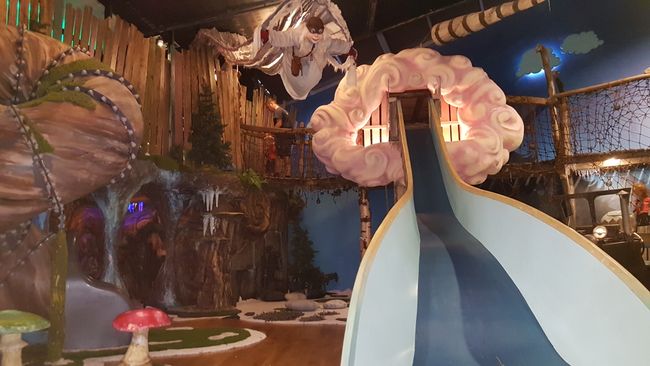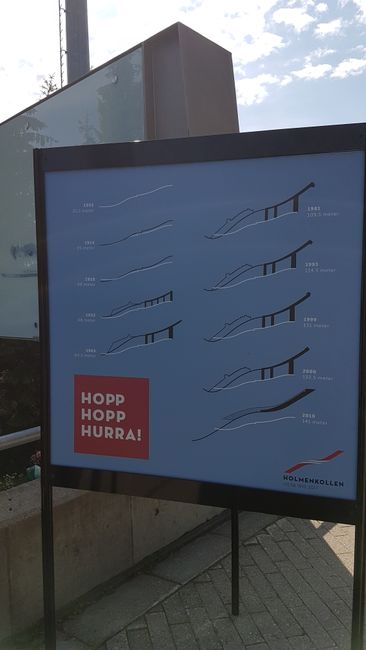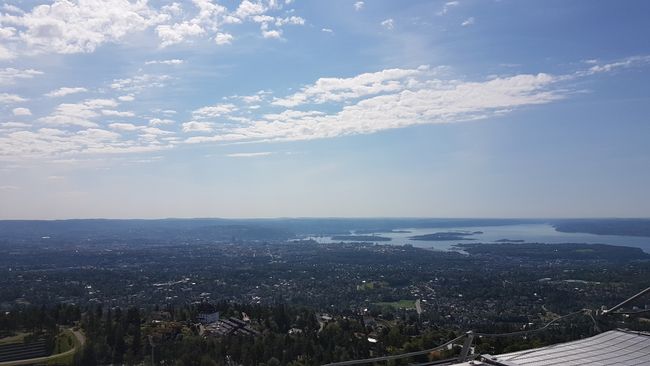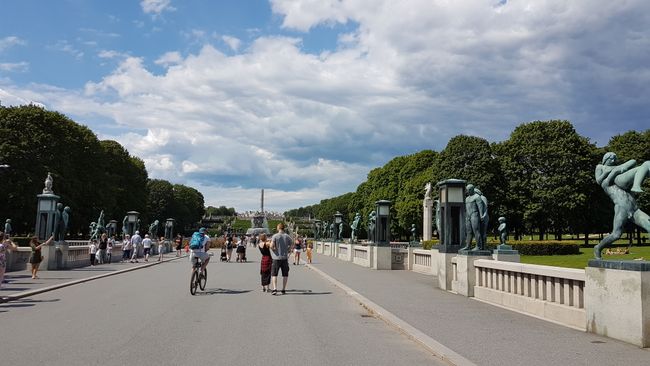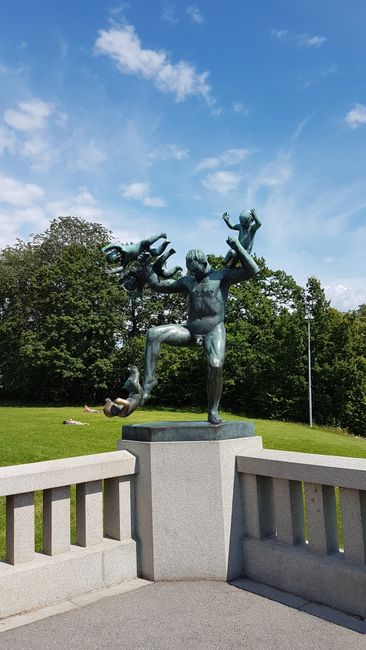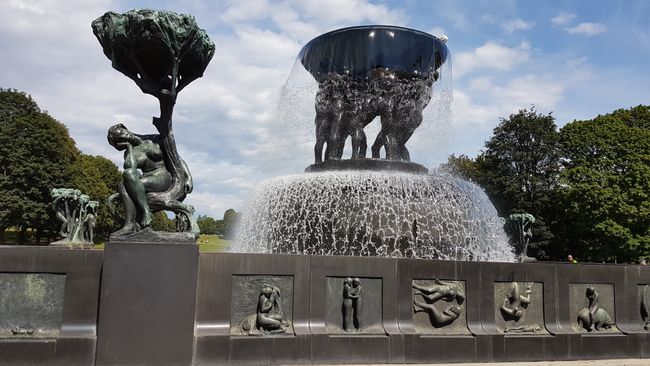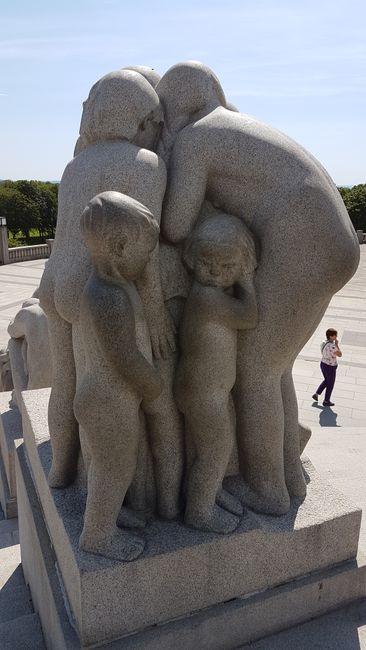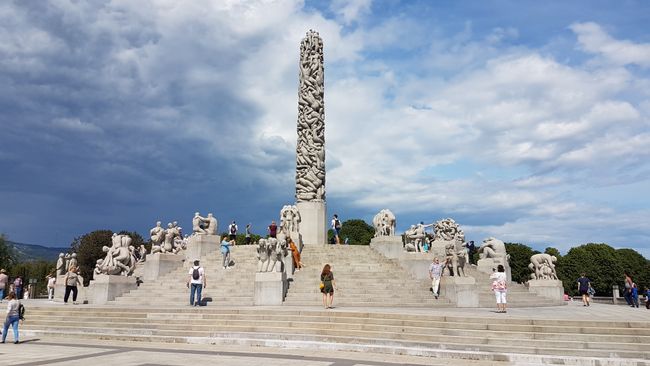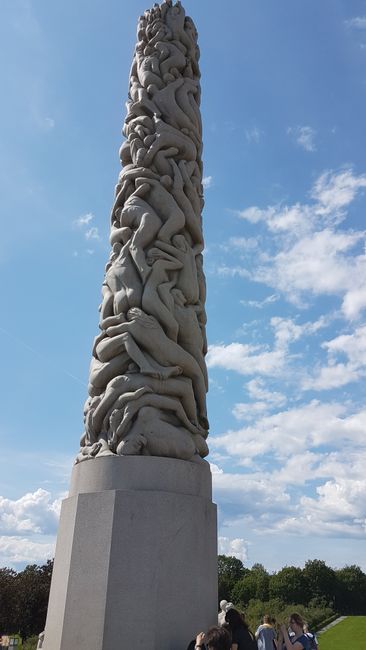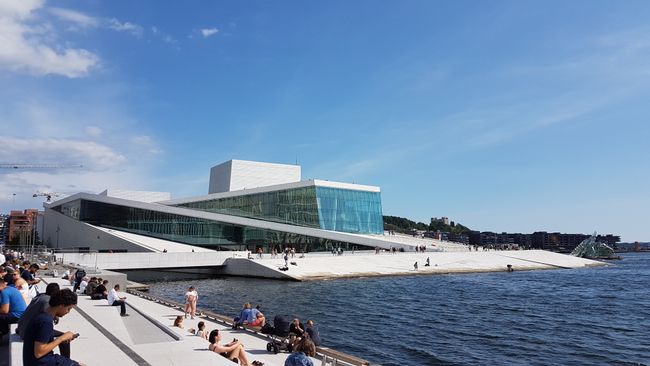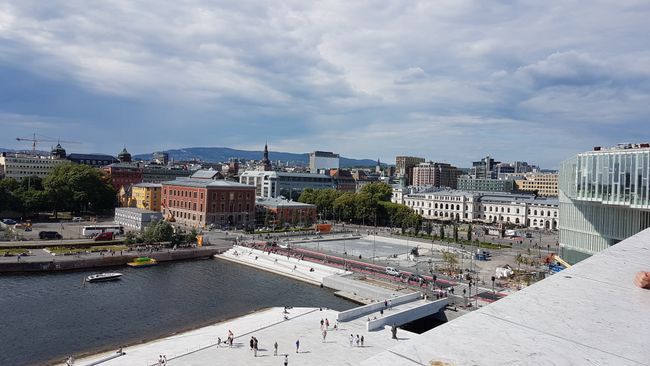Day 6: Oslo
Julkaistu: 11.07.2019
Tilaa uutiskirje
Today we are using public transport and heading northwest out of the city to Holmenkollen, a 371-meter-high mountain on the outskirts of Oslo. Our destination is Holmenkollbakken, which is considered the oldest ski jumping hill in the world. Built in 1892, it has been rebuilt 18 times. Today, its tower stands at a height of 60 meters. The Olympic Games were held here in 1952. There is a museum and we can visit the tower. With the elevator, we stand on the platform with a view of the entire city of Oslo. The sun is shining and it is warm. There is an option to slide down on a cable winch for €60. It's not for us, but we watch others do it. Once we reach the bottom, there is a lot to see in the museum. The history of the hill, skiing, and the surrounding area is shown. A German held the hill record for 5 years: Sven Hannawald with 132.5 meters in March 2010. There is also a beautiful indoor playground called Magic Forest that fascinates our children.
Afterwards, we visit the cross-country skiing and biathlon stadium and once again see the entire ski jump from below. We then leave the area and take the train to Frogner Park. There, we have a picnic in the greenery. The Vigeland Sculpture Park is located here and showcases 212 stone and bronze sculptures by Norwegian sculptor Gustav Vigeland, created between 1907 and 1942. Numerous sculptures symbolize the cycle of human life. We see a bridge and a fountain with statues depicting people of all ages, as well as different constellations like man with child, man and man, man and woman, etc. All the depicted figures are naked. On a hill, there is a 17-meter-high column made up of 121 figures from Norwegian Iddefjord granite, surrounded by 36 groups of figures. I see myself in some of the sculptures.
Before we move on, the children play at the playground. We take the metro to the main train station and the opera house located behind it. The new opera house was built in 2008 for approximately €548 million and opened 5 months ahead of schedule. We can learn something from the construction of the Berlin Brandenburg Airport and the Elbphilharmonie in Hamburg.
The new opera house is considered the largest cultural project in Norway after World War II. The building, which resembles a floating iceberg, is 110 meters wide, 207 meters long, and has over 1,100 interior spaces covering an area of 38,500 square meters. Of the three playing areas, the main stage with 1,358 seats for the audience is the largest. The facade of the building is made up of 90% white Italian Carrara marble and 10% Norwegian granite, running around the opera house. This allows us to access the roof directly from the side. Here, we have a view of the harbor. The bright stone is very dazzling. Now we hurry to get back to the metro because the tickets can still be used within 60 minutes. We have 3 minutes left when we jump on the train. Fortunately, it's only 2 stations, so we have made optimal use of our time. From the National Theatre, we walk the remaining distance to the Royal Palace. King Harald V of Norway is the head of state and primarily performs representative duties. The flag is raised, and when we ask who from the Royal Family is present, we are told that the king is in Norway. For security reasons, the exact location is not known. We now take photos of the Royal Guard and look for some souvenirs. It is very warm, and we cool our feet in a fountain. Then we look for a snack for dinner and enjoy the peace and relaxation in our hotel room.
Tilaa uutiskirje
Vastaus (1)
Regina
interessant. das ist auch etwas für uns.
Wir haben heute die Sachen eingeladen und werden morgen früh losdüsen.
Wir hören uns und ich freue mich.